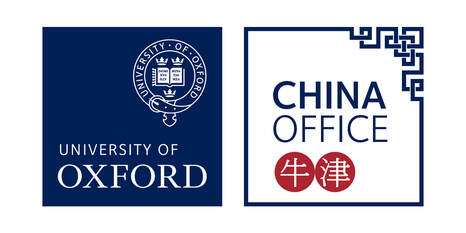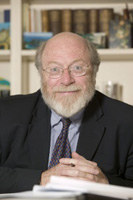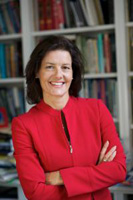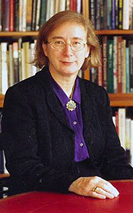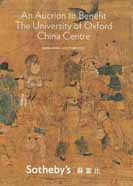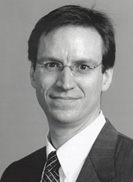Past Events
|
'Oxford Academics in China' Series:
The Nuclear Renaissance - Worldwide Professor Roger Cashmore FRS, Chairman of the UK Atomic Energy Authority Thursday, 8 December 2011 Cocktails at 7:00 pm, Lecture at 7:45 pm British Council, 3 Supreme Court Road, Admiralty, Hong Kong Join fellow Oxford alumni and friends for an illuminating evening with one of the UK’s most distinguished voices on atomic energy issues. Roger Cashmore was appointed Chairman of the UK Atomic Energy Authority on 30 July 2010. He is a Fellow of the Royal Society and the former Principal of Brasenose College in Oxford, as well as being Professor of Experimental Physics in Oxford. Before returning to Oxford, he was Director of Research and Deputy Director General of CERN, the European high energy physics laboratory in Geneva, Switzerland, where he was responsible for the experimental programme at the Large Hadron Collider (LHC). Before leaving for CERN he was Chairman of Physics in Oxford and during his teaching and research career he has more than 200 publications in learned journals. He has been a Visiting Professor in Tsukuba in Japan, Brussels, Padua, Fermilab in the United States and holds an Honorary Doctorate from the Joint Institute of Nuclear Research in Dubna, Russia. Currently, he is Chairman of the scientific committee at the Gran Sasso National Laboratory of the INFN in Italy. He was awarded the C V Boys Prize of the Institute of Physics and a Research Award by the Alexander von Humbold Foundation in Germany. In 2004 he was made a Companion of the Order of St Michael and St George (CMG) for services to international particle physics. |
|
'Oxford Academics in China' Series:
Better Governance in the 21st Century Professor Ngaire Woods, Dean of the Blavatnik School of Government Tuesday, 25 October 2011, 7.30 - 9.30 pm The Hong Kong Bankers Club, 43/F, Gloucester Tower The Landmark, 16 Des Voeux Road Central, Hong Kong The Oxford China Office would like to invite you to an exciting alumni event on 25 October 2011 to announce new developments in the Blavatnik School of Government, Europe’s first major school of government. We are honoured that Professor Ngaire Woods, Dean of the Blavatnik School of Government, will be in Hong Kong as our guest speaker. Launched in September 2010 with a £75 million donation from the American philanthropist Leonard Blavatnik, the School will offer a full-time one-year Master of Public Policy programme in 2012. With a curriculum drawn from across the University’s four divisions: humanities; medical sciences; social sciences; and mathematical, physical and life sciences, Blavatnik students will be recruited competitively from all regions of the world and will be outstanding practitioners with a commitment to public service and a track record of outstanding academic achievement. Applications are now invited for the School’s first cohort of students. In this alumni event, details of the programme and scholarships available for Chinese applicants will be unveiled. We are also delighted that Professor Woods will deliver a talk titled, “Better governance in the 21st century”. Professor Woods is a recognized world authority on international relations, global economic governance, the challenges of globalization, and the role of international institutions. Regularly called upon by governments and global institutions to offer her expertise, she has held advisory roles in the International Monetary Fund, the United Nations, the World Economic Forum, the Commonwealth, the European Parliament, the African Development Bank, and the British government under three successive Prime Ministers. |
|
'Oxford Academics in China' Series:
China and Central Asia Exoticism in China, Sixth to Eighth Century CE (Dr Mok Hing Yiu Lecture) Professor Dame Jessica Rawson CBE, FBA, Professor of Chinese Art and Archaeology, Institute of Archaeoloty, University of Oxford Thursday, 20 October 2011, 3.00 pm Cho Yiu Hall, University Administration Building, The Chinese University of Hong Kong Shatin, New Territories, Hong Kong With the fall of the Han dynasty in the third century CE, northern China came under the rule of several different dynasties, including those set up by the Xianbei people, ruling as the Northern Wei and their successors. During these centuries, Buddhism was introduced and the great caves temples at Yungang and Longmen carved with a multitude of Buddhist figures. This interest in religious figural sculpture was one of many innovations brought to China from Central Asia. At the same time foreign luxuries in gold, silver and glass were popular with the élite. The talk will describe some aspects of this exotic lifestyle fostered by the sixth century rulers of the Northern Qi and Northern Zhou, a time when their capitals were hosts to Sogdian traders, whose recently excavated coffins and coffin beds have provided an exciting window onto the customs of these important merchants. These sixth century tombs provide a context for the luxuries of the early Tang in the seventh and eighth century. Like their predecessors, the Tang sought influence in and contact with Central Asia. This interest is mirrored especially in the sancai, or three coloured lead glazed, ceramics, used both as vessels and as tomb figures. Among these, flasks and dishes with complex appliqués and figures of camels and horses are especially well known. The talk will argue that these famous wares, being made in China, were intended to present and to suggest a Central Asian taste, and provide a cosmopolitan atmosphere for those who used them. These ceramics were, indeed, deliberately exotic by design. |
|
An Auction to Benefit the University of Oxford China Centre
(presented by Sotheby's Hong Kong) Tuesday, 4 October 2011, 3.00 - 4.00 pm Hall 3, Hong Kong Convention And Exhibition Centre, Wanchai, Hong Kong Sotheby’s autumn sale on the afternoon of 4 October will be dedicated to the University of Oxford China Centre. 13 alumni and friends will donate proceeds from the sale of their artworks to the Oxford China Centre’s new building, construction of which is planned to begin in 2012. |
|
'Oxford Academics in China' Series:
Can China Save the World? (co-presented with Asia Society Hong Kong Centre) Dr Karl Gerth, Author and Tutor in Modern Chinese History, Merton College, University of Oxford Tuesday, 15 March 2011 Cocktail reception at 6.30 pm, Presentation at 7.00 pm Hong Kong Club, 1 Jackson Road, Central, Hong Kong Chinese and international political and business leaders now look to Chinese consumers to replace their American and European counterparts and rescue the global economy. Such pressure for Chinese to consume more is certain to continue in the coming years. But what are the implications for China and the world of Chinese consumers adopting the lifestyles of the middle classes in developed economies? Drawing on the research in his new book, Oxford University historian Karl Gerth explains how - from the brands we buy to the biosphere we inhabit - we are all being affected by the everyday choices made by ordinary Chinese, whether we do business there or not. Dr Gerth is the author of As China Goes, So Goes the World: How Chinese Consumers are Transforming Everything, which explores the wide-ranging ramifications of China’s shift toward a market economy over the past thirty years. He currently teaches at Oxford University, where he is a Fellow & Tutor at Merton College. Dr. Gerth’s previous book China Made: Consumer Culture and the Creation of the Nation focused on the role of nationalism in forming a consumer culture in pre-World War Two China. Prior to Oxford, Dr. Gerth taught at the University of South Carolina. He graduated from Grinnell College and received his PhD from Harvard University. Booksale after program. |
|
'Oxford Academics in China' Series:
The Origins of Earth-like Planets Professor Alex Halliday, Head of the Mathemetical, Physical and Life Sciences Division Tuesday, 16 February 2011, 7.30 pm The Square, 4/F Exchange Square 2, Central, Hong Kong Over the past 20 years technological advances have made it possible to accurately determine the time scales of planet formation in the laboratory. The proportions of isotopes in key elements in meteorites and lunar samples provide unique evidence that constrains the ages of the Earth, Moon and Mars, as well as, for example, which light elements have been sequestered into Earth’s metallic core. The Moon is thought to have formed from the debris produced in a collision between Earth and another planet called “Theia”. It can be shown that this Giant Impact took place approximately 100 million years after the start of the solar system and was contemporaneous with major losses of volatile elements (probably noble gases, hydrogen, carbon, nitrogen) from the Earth. There is evidence that Venus, Earth and Mars started with strikingly similar volatile element compositions that were changed by such late losses as well as some later additions. The net result is that carbon and nitrogen are actually more depleted in the silicate Earth (that is the whole planet minus its iron core) than any other element, when measured relative to the most primitive meteorites. The little we have may have been added quite late, which is particularly important given the search for habitable planets elsewhere in the galaxy. |
